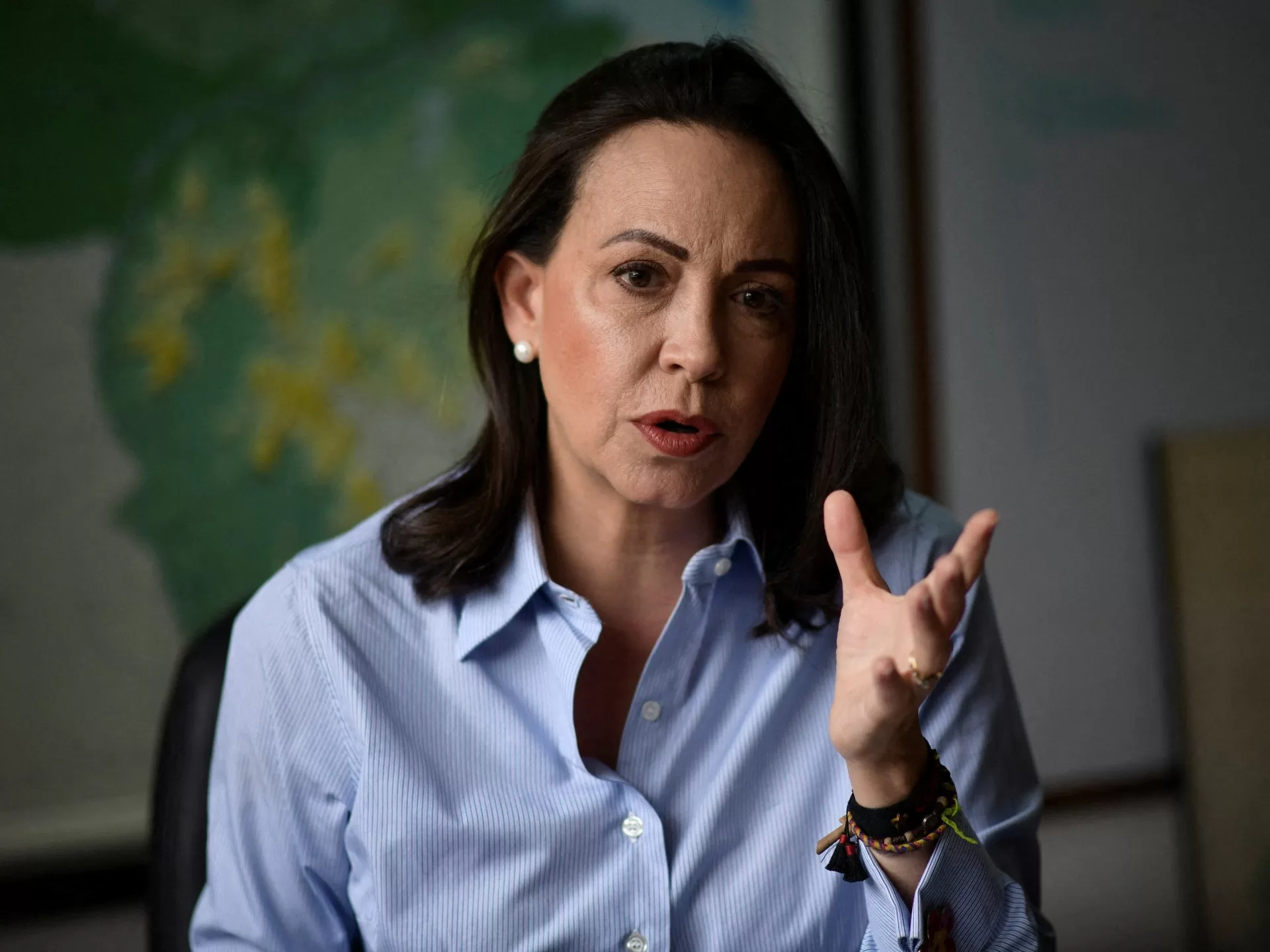Maria Corina Machado had declared victory in the Venezuelan opposition’s presidential primary last October.
Machado, a former lawmaker, won the opposition’s independently run presidential primary last October with more than 90 percent of the votes, potentially putting her in a prime position to challenge longtime socialist leader Nicolas Maduro at the elections.
Her victory came despite the government announcing a 15-year ban on her running for office just days after she formally entered the race in June.
After the court issued its ruling on Friday, Machado posted on social media that her campaign’s “fight to conquer democracy through free and fair elections” is not over.
“Maduro and his criminal system chose the worst path for them: fraudulent elections. That’s not going to happen. Let no one doubt it, this is to the end,” the 56-year-old wrote on X.
El régimen decidió acabar con el Acuerdo de Barbados.
Lo que NO se acaba es nuestra lucha por la conquista de la democracia a través de elecciones libres y limpias.
Maduro y su sistema criminal escogieron el peor camino para ellos: unas elecciones fraudulentas. Eso no va a…
— María Corina Machado (@MariaCorinaYA) January 26, 2024
The court’s decision came hours after three of Machado’s allies were detained on accusations of conspiracy, amid growing tensions between Maduro’s government and the political opposition.
Attorney General Tarek Saab accused Guillermo Lopez, Luis Camacaro and Juan Freites, who belong to Machado’s Vente Venezuela party, of forming part of a group of at least 11 people who he said tried to rob a military weapons arsenal last year before a planned assault on a pro-Maduro state governor.
Saab said on state television that the three were “criminals”.
In a post on X, the Vente Venezuela party said that Camacaro and Freites had also appeared in court in Caracas on Thursday without private legal representation or contact with their families permitted, calling it an “illegal and arbitrary” procedure. It did not mention Lopez.
US-Venezuela relations
The court said it also upheld findings that Machado supported US sanctions, had been involved in corruption, and had lost money for Venezuela’s foreign assets, including United States-based oil refiner Citgo and chemicals company Monomeros, which operates in Colombia.
The US has conditioned a continuation of sanctions relief for Venezuela, granted in October on the back of an electoral deal signed in Barbados, on Maduro freeing political prisoners and “wrongfully detained” Americans.
While the Maduro government released five prisoners, including prominent opposition members, it reiterated that those with disqualifications will not be able to run in the 2024 race.
On Thursday, Maduro said the Barbados agreement was “mortally wounded” after government authorities claimed to have foiled numerous plots to assassinate him.
Currently, the upheld ban on Machado could set relations back between the US and Venezuela.
“The regime decided to finish off the agreement in Barbados. What it didn’t finish was our fight to see democracy win via free and fair elections,” Machado said in a message via X.
Maduro, the protege of former President Hugo Chavez, has been in power since 2013. While he has not formally announced his re-election bid, he is widely expected to seek a third six-year term in 2024.
A victory would put him on track to stay in office until 2030, far exceeding the 11 years that Chavez held power.
